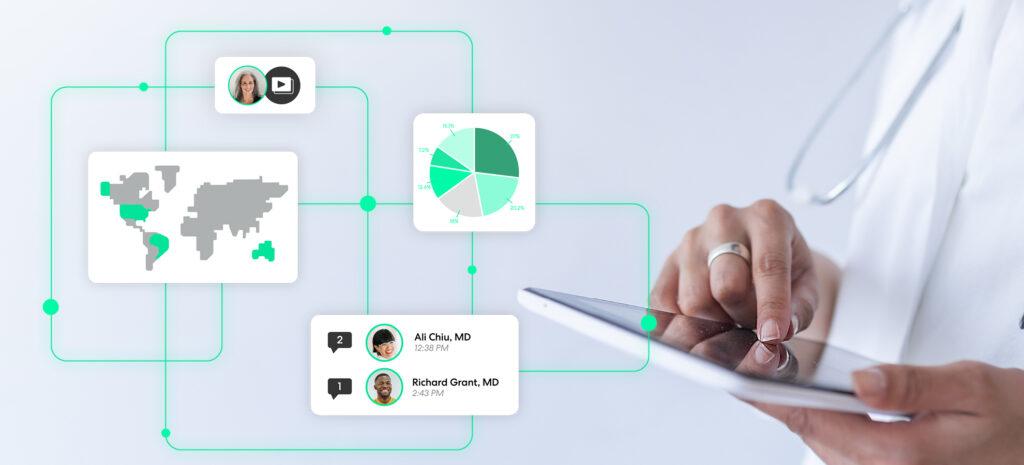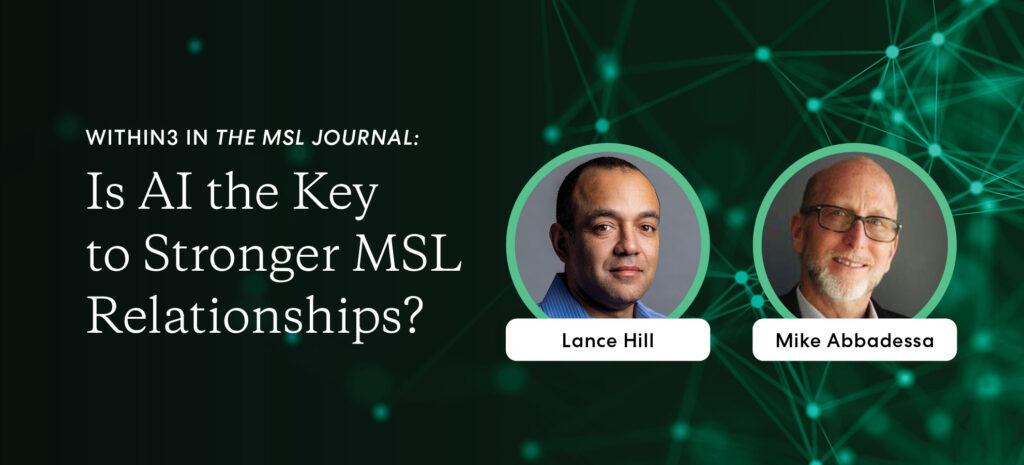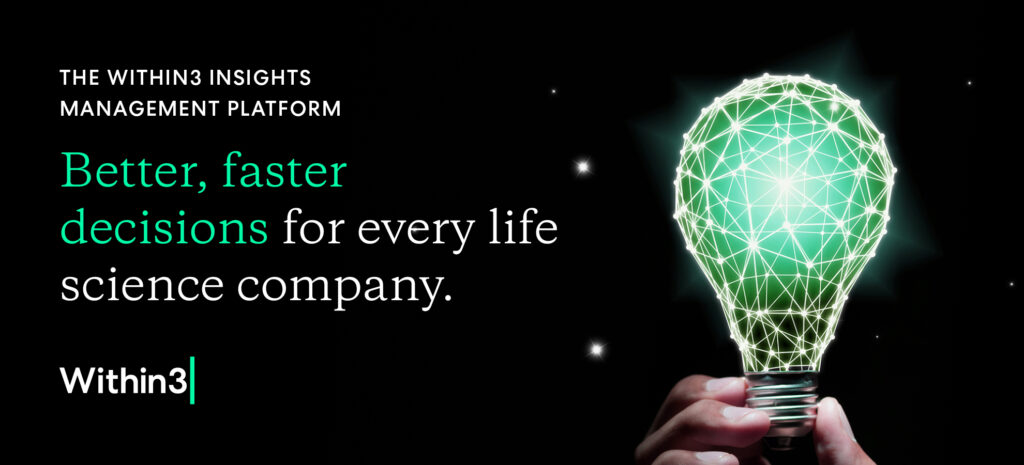Within3 CEO Lance Hill recently appeared on the Pharmaceutical Commerce podcast to discuss the insight gap, pharma’s biggest challenges, the importance of diversity and inclusion in drug development, and how artificial intelligence is changing the industry’s work.
During the discussion, Hill highlighted how life science companies traditionally look at the insight-gathering process versus how they should be looking at it now – in other words, why a fragmented and slow approach needs to be replaced by a modern, tech-enabled process. “It’s very siloed, and it’s very, very expensive,” says Hill. “You have a lot of vendors, a lot of extra services involved…and the fact that the whole process is not integrated makes it really inefficient.”
These inefficiencies can multiply throughout developing and marketing a drug, particularly regarding accounting for the diverse populations life science companies serve. Pharmaceutical and medical device companies are increasingly addressing these issues with insights management technology, including network analytics and social listening, asynchronous engagement, and artificial intelligence.
“A lot of AI in life science historically, especially in a clinical R&D space, has been focused on structured data…[but] most insights that come in are unstructured text.” Hill explains, “AI helps you take all those inputs from all your field interactions, group interactions, or assessments you may take…bring it all together and analyze it in real-time.”







